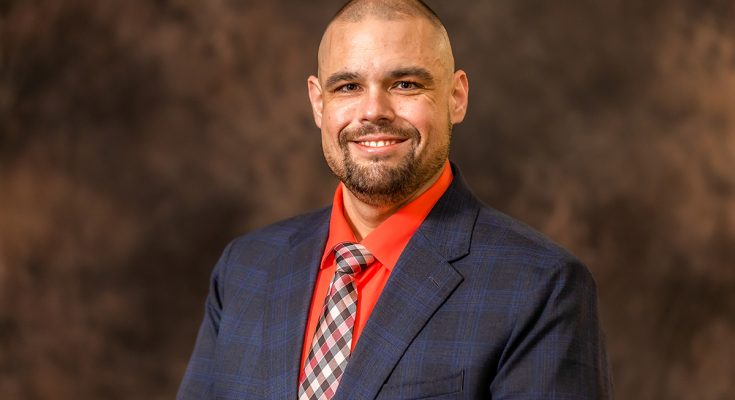When it comes to the health and wellness of the community, ambulance services can and do save lives — and much more. Here, David Basnak, the new president / executive director of Emergy Care Inc., discusses the importance of the nonprofit organization and its services in Erie and beyond.
You recently became head of EmergyCare, effective February 1. What can you tell our readers about your experience?
My journey in emergency medical services (EMS) started in 2001 when I attended an evening emergency medical technician (EMT) class during my senior year of high school. After graduation, I worked part time as an EMT while attending college for a degree in Information Technology from Penn State. During this time, my passion for EMS continued to evolve in parallel with my desire to provide a higher level of care to people in need. A year later, I started an evening paramedic program while continuing to work and attend college.
Now, looking back at my 20 years of EMS experience, 15 years of my experience have been in various EMS management and leadership roles including: Continuous Quality Improvement coordinator, Operations manager, EMS specialist, senior manager of Prehospital Care, assistant director, and now president / executive director. During this time, I completed an associate degree in information technology, a bachelor’s degree in disaster and emergency management, and a master’s degree in business administration. I also hold board certifications as a certified medical transport executive, certified emergency manager, and a critical care paramedic.
Tell us about EmergyCare, its mission and history.
EmergyCare is a 501c3 nonprofit organization that’s mission is to save lives and positively impact the health, well-being, and safety of the communities we serve.
EmergyCare was founded in a grassroots effort to provide quality, life-saving care to patients outside of the hospital setting. This was a joint endeavor by then-Hamot Medical Center, St. Vincent Hospital, Metro Hospital, and the City of Erie. Because of EmergyCare’s expertise in prehospital medicine, TransCare Ambulance (Warren, Pa), Kane Ambulance, Titusville Ambulance, and Corry Ambulance would all later be acquired by the organization.
EmergyCare provides much more than a ride to the hospital. Please explain.
EmergyCare specializes in providing prehospital care medicine and medical transportation solutions. This ranges from providing basic services such as medical taxi / paratransit transportation to advanced care by bringing critical care services to the patient’s side with the mobile intensive care unit.
In addition, we also provide various new EMS certification programs along with several public CPR courses.
Describe EmergyCare’s service area, operation and fleet.
EmergyCare provides service to parts of seven counties, spanning more than 2,100 square miles and has stations located in Erie, Corry, Warren, Titusville and Kane. Our catchment area covers nearly half a million people, and we receive over 65,000 requests of service every year.
The fleet of vehicles includes 34 ambulances, five paramedic response units and 23 paratransit units.
EmergyCare has been a critical provider during COVID-19. Tell us more.
Our team at EmergyCare has been the true front line of the pandemic. Over the past two years, COVID-19 has continued to throw difficult situations in which our staff was able to immediately analyze, adjust and execute to continue our mission to the community. To date, our staff has had contact with thousands of COVID-19 patients. Our staff has worked tirelessly through high call volumes, staffing shortages, and the overwhelmed health-care system to continue to provide essential services. I am proud of the positive impact they have had on our community during this public health crisis.
What’s ahead for EmergyCare in 2022?
The primary focus in 2022 is the recruitment and retention of qualified staff to continue to advance our mission forward. EmergyCare is proud to have the ability to provide new provider EMS education training to produce our own qualified clinical staff. In fact, EmergyCare is the only organization accredited to provide EMS education training at the paramedic level in northwestern Pennsylvania.
Additionally, EmergyCare will be continuing to advocate for local, state, and federal funding of EMS. Subpar insurance reimbursement and the lack of financial support to EMS is a major contributing factor to the current EMS staffing crisis. As one of the largest EMS organizations in Pennsylvania, EmergyCare has the responsibility to be an advocate for the industry.
For more information about EmergyCare, visit emergycare.org.













